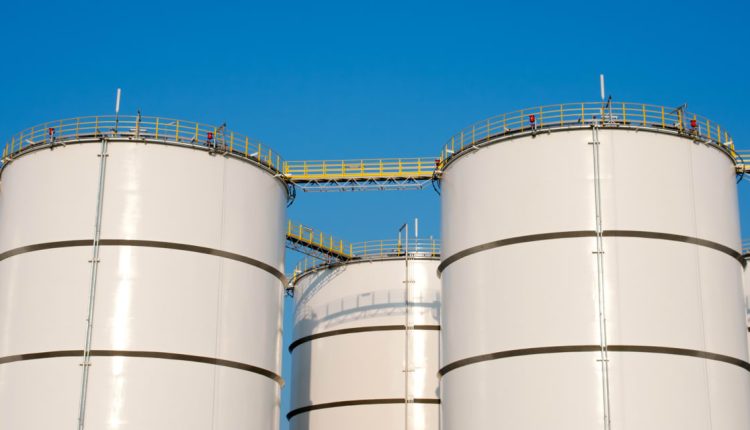An unpredictable war in the Middle East has long seemed like the biggest geopolitical risk for oil prices. Past Mideast crises have remade energy markets, forcing both profound regime shifts and more prosaic changes like reductions in the speed limits on American highways. Hamas’ latest attacks against Israel have set off the most intense fighting there for decades, but the impact on oil prices is notably mild so far.
Brent crude prices
were up 4% on Monday, to $88 per barrel, a significant increase but nothing like past spikes. Americans may not even see much impact at the pump. Despite a 2.7% increase in
gasoline futures prices
on Monday, U.S. retail gasoline prices should continue on their recent downward trajectory, says Patrick De Haan, head of petroleum analysis at GasBuddy. Average prices are at $3.70 per gallon, down 11 cents in the past week.
“For now, oil in the short term may hold into the $80s, but until the national average drops into the $3.30s, we’re at very very low risk of any upward move in gasoline prices,” De Haan wrote on X, formerly known as Twitter.
The situation in energy markets was much different 50 years ago. In 1973, the Yom Kippur War helped kick off an oil embargo by several Arab states protesting U.S. support for Israel’s response. Oil prices nearly quadrupled in the next three months, and they stayed at elevated levels even after the conflict was resolved.
President Richard Nixon helped spur a shift in how America uses oil, from changing speed limits to setting up a strategic petroleum reserve. A second oil crisis in 1979, caused by Iran’s decision to take American hostages, caused another dramatic spike. That era was world-changing. On an inflation-adjusted basis, current oil prices are around the same as they were after that second crisis.
The latest bloodshed is as shocking as past crises, and will likely lead to more violence. Hamas’ surprise attack on Israeli civilian targets over the weekend launched Israel into a war that Prime Minister Benjamin Netanyahu warned could “change the Middle East.”
The extent of the impact on oil prices is probably going to be modest, however. If the conflict remains within Israel, price changes will stay muted. “Israel is a very marginal oil producer, and so recent developments will have little direct impact on oil supply,” wrote ING analyst Warren Patterson in a note.
Oil traders have been wary of betting on geopolitically-driven increases or decreases in prices over the past 18 months, following Russia’s invasion of Ukraine, because the actual changes in oil supply and demand have been smaller than some analysts had predicted. Investors “should not expect a large oil price spike in the coming days,” wrote hedge fund manager Pierre Andurant on X.
History suggests the impact could be limited. “Conflicts involving Israel and its immediate Arab neighbors have had no lasting impact on oil prices this century,” wrote Marko Papic, chief strategist at Clocktower Group. “One major reason is that Arab states are no longer closely aligned in how they view Israel. Palestinians have few true allies in the region. Saudi Arabia is focused on internal economic development and maximizing its long-term interests. Egypt is not supportive of Hamas. Syria is decimated by civil war. Iran continues to be as anti-Israeli as ever, but is unlikely to risk retaliation by Israel and the US for the sake of Palestinians.”
The world has changed in other ways since those previous oil crises. The U.S. is now the world’s dominant producer, and can supply essentially all domestic needs. The U.S. also has a strategic petroleum reserve that, while considerably lower than it was before the Russia invasion, still has enough oil in it to blunt price spikes if necessary. “The SPR is still well above its statutory minimums and the 90 days of net import cover recommended by the IEA,” wrote Benjamin Hoff, global head of commodity strategy at Société Générale, in an email.
The calculus for energy markets could still change depending on Iran’s role in the Hamas attack. Iran has provided support to both Hamas and Hezbollah, according to the U.S., though the extent of that support in the latest attack is still unclear. The Wall Street Journal reported that Hamas and Hezbollah officials claim Iran was directly involved in planning for the attack, a claim that Iran has denied. Israeli and U.S. State Department officials have said they don’t have evidence of Iran’s direct involvement. Should more evidence be made public and cause Israel to retaliate directly against Iran, the war could expand and cause a larger—and harder to quantify—impact on energy markets.
Iran’s oil exports are likely to be impacted to some degree regardless of whether it becomes more directly involved in the war. Iran now produces about three million barrels of oil a day, around 3% of the global market. Its production and exports have risen this year as the U.S. appears to have been less aggressive at enforcing sanctions against the country, analysts say. Iranian production is up about 600,000 barrels a day since January. But even if the U.S. began to enforce sanctions more aggressively and all of those 600,000 barrels went off the market, it wouldn’t impact global supply much. Saudi Arabia alone has more than two million barrels of unused capacity it could bring back to market.
For good reason, energy traders are watching the Israel conflict closely. The impact, however, may not swing the oil market much.
“In the near term, therefore, we believe that another chapter of Israel-Palestinian conflict is largely macro irrelevant, as it has always been,” wrote Papic. “It may compound on an already oil bullish macro context, but not in a significant way.”
Write to Avi Salzman at [email protected]
Read the full article here

